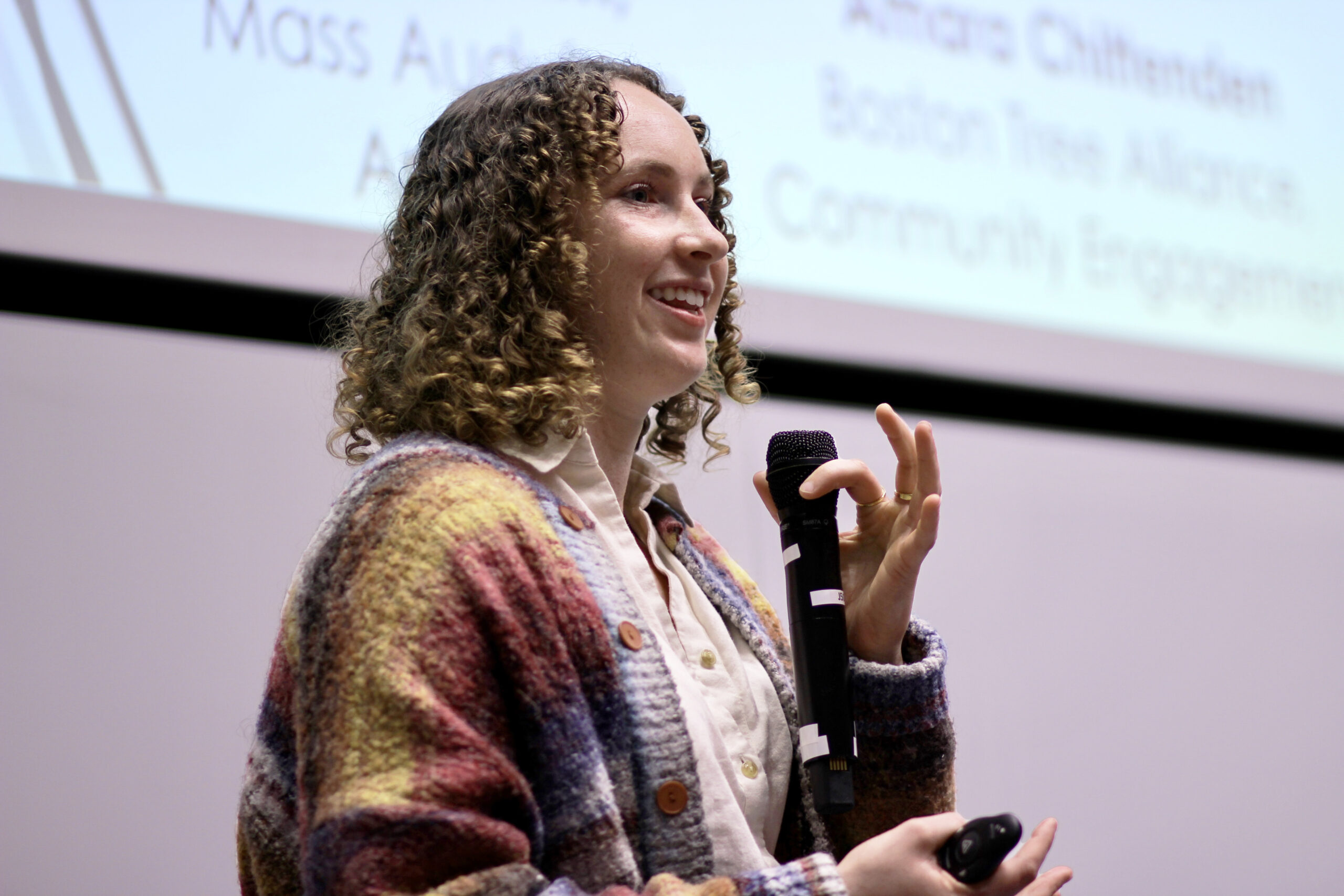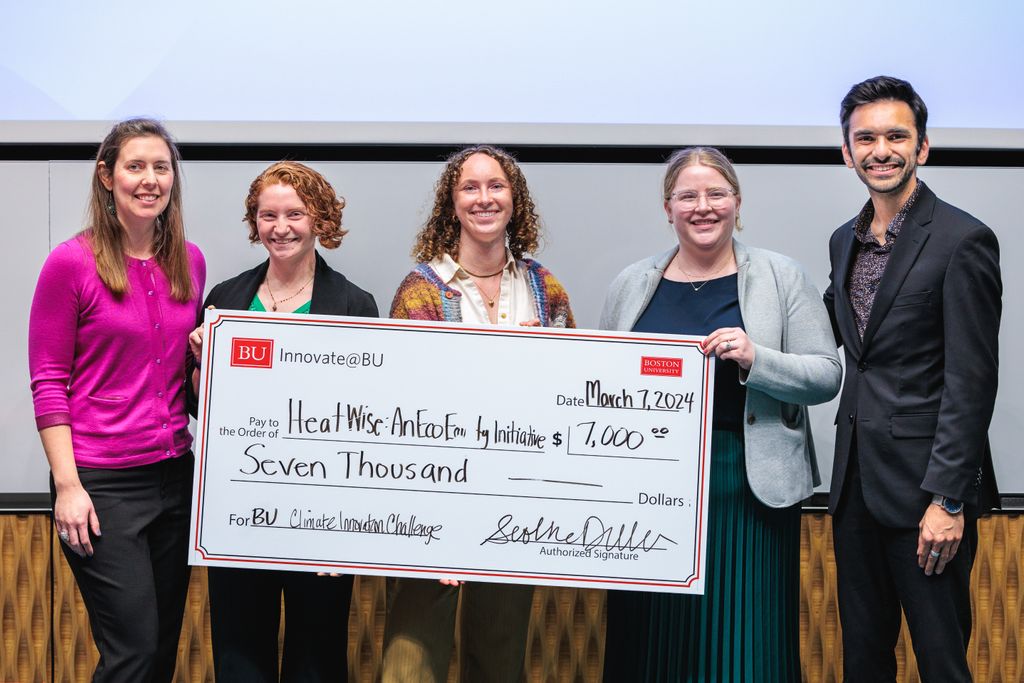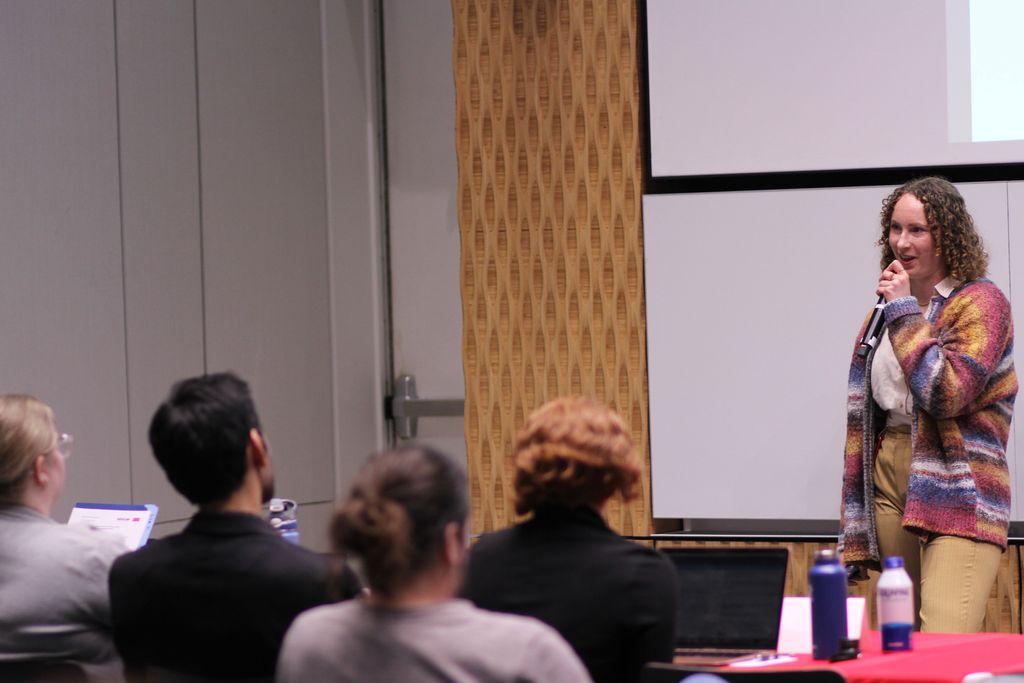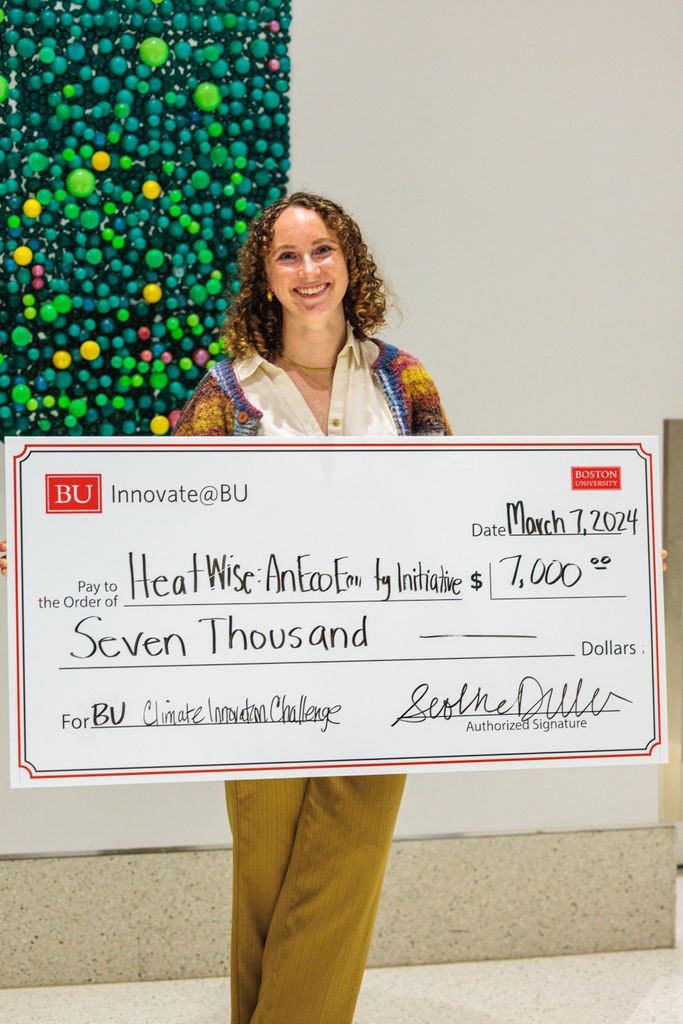Student Wins Climate Innovation Challenge with Tree Planting Initiative.

Student Wins Climate Innovation Challenge with Tree Planting Initiative
School of Public Health student Megan Ryder earned $7,000 for her first-place pitch in the grand finale of the university-wide Changemaker Challenge.
School of Public Health student Megan Ryder earned first place in the 2024 BU Climate Innovation Challenge for her proposal for a community-driven tree planting initiative designed to curb Boston’s urban heat island effect.
Ryder pitched the project, called Heatwise: An EcoEquity Initiative, during the competition’s grand finale on March 7, where a panel of experts awarded her $7,000 to support her implementation efforts.

“Everyone deserves to benefit from climate initiatives. I wanted to use my privilege as a BU student to give a Boston community disproportionately affected by climate change an opportunity to benefit from the restoration of local biodiversity in their neighborhood,” says Ryder, an MPH candidate who studies epidemiology and biostatistics at SPH.
Ryder’s Heatwise EcoEquity Initiative (formerly Micro Afforestation) will establish small forests in densely developed urban areas with the goal of improving residents’ quality of live by reducing ambient air temperatures and providing opportunities to connect with nature.
Innovate@BU hosted the climate competition as part of its annual Changemaker Challenge, a university-wide initiative bringing together Terriers from across BU’s 17 schools and colleges to develop out-of-the-box solutions to real-world problems facing the City of Boston. This year, Innovate@BU partnered with BU Sustainability, BU Engineering Product Innovation Center, BU Spark!, the BU Initiative on Cities, the Earth & Environment Graduate Student Association (EEGSA), and the Boston Climate Action Network (BCAN) to challenge students to come up with strategies for building the city’s climate resilience. The four 2024 finalists competed for their share of $15,000 in funding—the largest prize of any previous Changemaker Challenge.

The idea for Ryder’s project came to her while volunteering under Amruta Nori-Sarma, assistant professor of environmental health, at the newly formed BUSPH-Harvard Chan School CAFÉ, an NIH-funded Research Coordinating Center for climate and health scholarship where Nori-Sarma serves as a principal investigator. CAFÉ has put a lot of effort into developing pilot funding for climate and health researchers from historically underrepresented regions of the world, says Ryder. “It is fantastic work, wildly beneficial to the collective environment, and it got me thinking about inequitable resources for climate initiatives in lower socioeconomic communities.”
As a 2024 BU Sustainability Innovation Seed Grant recipient, Ryder earned $500 to jumpstart her project last fall. She was able to consult with a professional arborist on her idea through a partnership with the Boston Tree Alliance, a municipal program funded by Mass Audubon that supports tree planting activities. She plans to use the Miyawaki afforestation method to rapidly cultivate tiny forests of native plants in Dorchester, Boston’s largest and most diverse neighborhood. Dorchester is home to number of groups often disproportionately affected by extreme heat including people of color, children and the elderly, low-income residents, and those with chronic medical conditions.
Ryder credits Sophie Godley, clinical associate professor of community health sciences, with helping her to develop the public health framework for the project. Ryder intends to begin implementation with an elicitation phase where community members can provide their feedback on her proposal, express any concerns they might have, and get involved themselves. The prize money will enable her to compensate those who participate.

“This program is a tree planting initiative, but its backbone lies in community engagement,” says Ryder, who has also partnered with the Dorchester-based nonprofit Speak for the Trees and the Upham’s Corner Health Center to facilitate connections with community members and solicit local input into the selection of sites for planting trees.
Ryder says she is most looking forward to collaborating with neighborhood schools to teach students about the effects of tree planting on their microclimate. She hopes to foster a citizen science program that encourages children to conduct observational research in the tiny forests established by her initiative.
Upon presentation with her “big check” at the end of an evening of tough competition, Ryder said, “I am just most excited to give this to the Dorchester community because that is why I am doing this [competition]. I am excited to tell Speak for the Trees that I have money to give them and I can see tangible change happening from that.”
